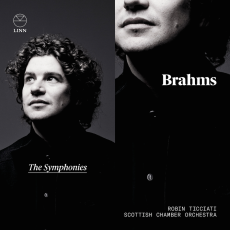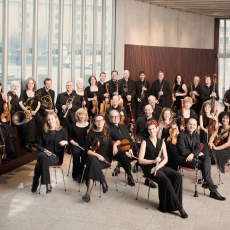Robin Ticciati & SCO - Brahms: The Symphonies - The Arts Desk
Slimmed-down Brahms is more common than it used to be, and geeks will probably cherish a pioneering set recorded in the 1990s by Sir Charles Mackerras with the Scottish Chamber Orchestra. Robin Ticciati’s new cycle, taped in Edinburgh’s Usher Hall last May, is superb on its own terms, though his isn't the only way to play Brahms. Don't chuck out those Karajan LPs just yet. Who's to know exactly what these pieces sounded like when first performed, and how big a complement of strings Brahms preferred? The gains here come in terms of clarity, Ticciati embracing Brahms’ critics’ jibe that these works were more chamber music than ‘proper’ symphonies. Winds are magnificent: if there's a more seductive oboe sound than that emitted by principal Mizuho Yoshii, I'm yet to hear it. Narrow-bored trombones lend Symphony No 2’s brassier moments huge punch (check out the descending scales in the finale’s coda), and horns (led by Alec Frank-Gemmill) use Viennese instruments. More striking still is timpanist Matthew Hardy’s use of hard sticks. You can actually discern the notes instead of the usual woolly thuds. Very occasionally I would have preferred more weight in terms of lower strings, but that's about as far as my reservations go.
That all four symphonies fit onto a pair of discs is telling: Ticciati's penchant for flowing speeds often makes for an exciting ride. The Allegro of No 1’s first movement bounces along, a compelling blend of jauntiness and menace. The closing minutes of the same work are exultant, Ticciati offering just the slightest slowing when the trombone chorale returns, before a dizzying rush to the finish. Magical moments abound: the first movement of No 2 winds down in enchanting fashion, and how good to hear a proper allegro con brio tempo at the start of No 3. Ticciati relishes the divisi string writing near the same symphony’s close - I'd go as far as to suggest that this is the best recent recording of the work I've heard. No 4’s melancholy is tempered with plenty of fire. The shift in mood from the scherzo's bright C major to the last movement’s doomy E minor chorale is startling, as if someone's abruptly switched out the lights. All wonderfully recorded, and a fitting way to mark the end of Ticciati’s tenure at the SCO.


